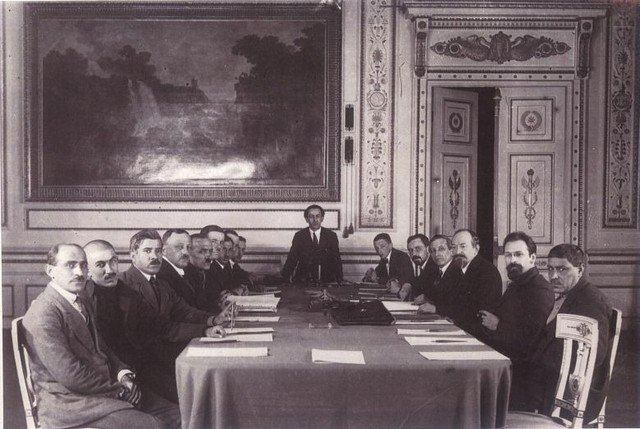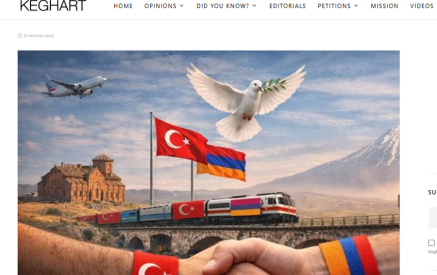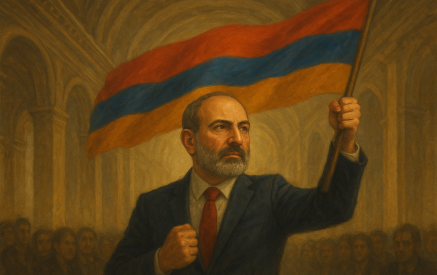One hundred years ago on March 16, 1921, two then-unrecognized states of the international community- Bolshevik Russia and Kemalist Turkey- signed an agreement in Moscow that de facto predetermined the future of our region. The agreement on Armenia was signed without Armenia and it was imposed on Armenia by military means using insiders. A significant part of Armenia was handed over to the Turks, the ‘brothers’ of the Russian Bolsheviks, for the sake of the Russian ‘big idea,’ according to a Russian proverb: they cross the forest and the shards fly. The Bolsheviks fed ‘anti-imperialist’ Kemal at the expense of their country devastated by civil war, placing ‘imperialist’ Armenians and Greeks under attack, which, in turn, was ‘baked’ by the war-torn West… That embarrassment and immorality were also accompanied by gossip about ‘Armenian-Russian friendship,’ and this was no longer a tsarist dictatorship, but a tsarist yoke claiming to ‘bring happiness to all mankind.’ The new Russian government, which was fighting against the tsarist levers, was starting to build the ‘fairest society in the world.’ And now, they are saying that they ‘saved us.’ The tragedy of one hundred years ago could simply be considered part of history today if it were not for the reality we live in after the 44-Day War.
The reality is that Armenia is facing existential uncertainty after the war, of which one of the most important and active creators was and remains Moscow, which sold billions of dollars worth of weapons to Azerbaijan “to do business” that “could mean nothing…” which “explains” to us that “centuries-old friendship with us does not mean animosity against Azerbaijan and Turkey.” No one in Armenia wants to discuss Russian responsibility; they only speak about “centuries-old friendship” so that they don’t “create” something worse in the Artsakh territories under Armenian control, so that they don’t “suspect” that we are “moving towards the West” as “independent sources” claim from the bed of that “centuries-old friendship,” so that it doesn’t seem as though we don’t have the need to “be saved by them,” or, God forbid, “we have ungratefully forgotten how they saved us and continue to save us.”
The Karabakh conflict itself would not have taken such a manifestation if the dying Soviet government did not reopen its ‘folders’ from 1905 and revive its blind imperialistic instincts. If that imperial-Soviet ‘animal’ had died, say, six months later, it is at least very likely that there was nothing to prevent it from finishing Operation Ring in Stepanakert. It was not a ‘great geopolitical catastrophe’ for the Armenian people; it gave a Free and Independent Armenia the opportunity to breathe, but the ability to ‘breathe freely’ was closed when the ‘new’ Russia reawakened its imperialism ghost, this time with the facade of ‘Russian peace,’ which assumes more rights and less responsibility. Large states are not banned from spreading their cultural and political influence upon small states when that is done without secret tactics or enforcement, or without destroying anything of value, and based on the principles of mutual assistance, instead of the “if there is power, you don’t need brains” principle. Today, Russia is guided by the strategy of turning independent, internationally-recognized states of 30 years into an ‘exclusive sphere of influence’ in the post-Soviet state, and the basis of the conflict with the West is that Moscow rejects the Yalta-2 deal. The ‘Enemy NATO’ ceases to be an enemy when it comes to Turkey, for which it is even possible to build a nuclear power plant and sell air defense systems that ‘did not work’ in Artsakh, as well as Azerbaijan’s ‘sovereign right’ to be allied with the NATO state Turkey, but if the same were to happen with another NATO member state, such as Ukraine, that would be considered ‘treason’ and ‘anti-Russian sentiment.’ And this is NATO’s entire ‘hostility’ for Moscow with all of its ‘charm.’ By the way, regarding hostility. Who said that our friendship with Russia means that we must also be hostile towards the West- the United States and Europe- or that we should allow Moscow to ruin our relations with the West? Or our relations with Russia’s declared ‘enemies’ Georgia and Ukraine, or others? Or that we should tolerate every scoundrel in our ranks who swears by Russia in order to avoid being caught, and declares those who catch them to be ‘agents of the dark forces of the West’?
Unfortunately, this hundred-year-old embarrassment and immorality was not reinterpreted in either Yerevan or Moscow. Bolshevik Russia has been ‘resting’ in a political dump for a long time, and it does not make sense to demand a political account from present-day Russia. However, on the other hand, it is obvious that the reviving imperial ‘skeletons’ that are cherished in Moscow and their political proxies that pollute the air in Yerevan because of their low intellect have remained Moscow’s hope without having any historical plans. And the successful burial of the political dead also has a hygienic meaning in the broadest sense of the word. It is time to accept that Armenia is not and will not be Russia, and in the 21st century, international relations must follow civilized norms. In any case, no one will tolerate the mannerisms of the Nikolai Palkin tsar from the 19th century. However, the ghost of the ‘new empire’ that roams around the post-Soviet space cannot legally solve any problem, but it can still cause many problems, even to the point of great bloodshed, for the sake of that ‘Russian peace.’ And avoiding that and following the path to civilization- the solution of which has not yet been determined- is what is keeping everything that happened a century ago relevant.
Read also
Ruben Mehrabyan



























































